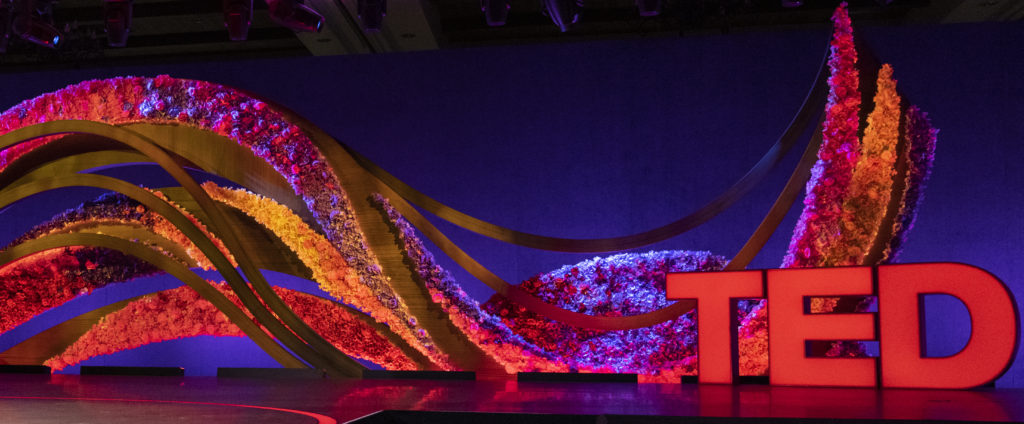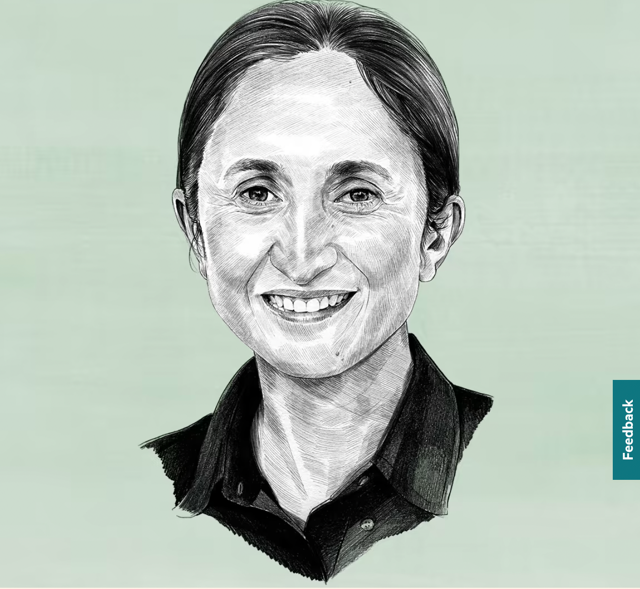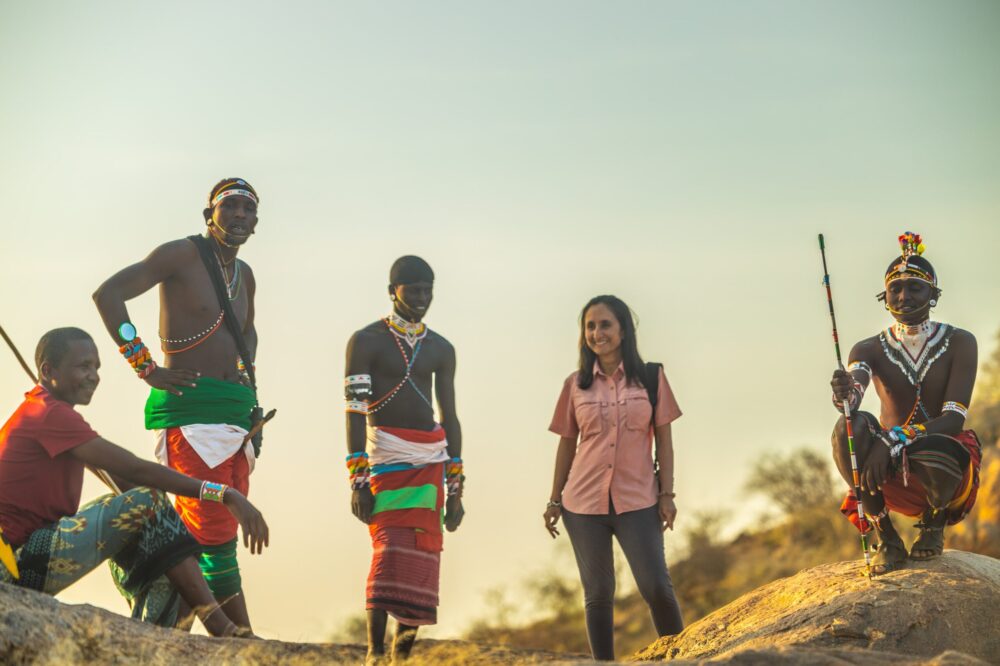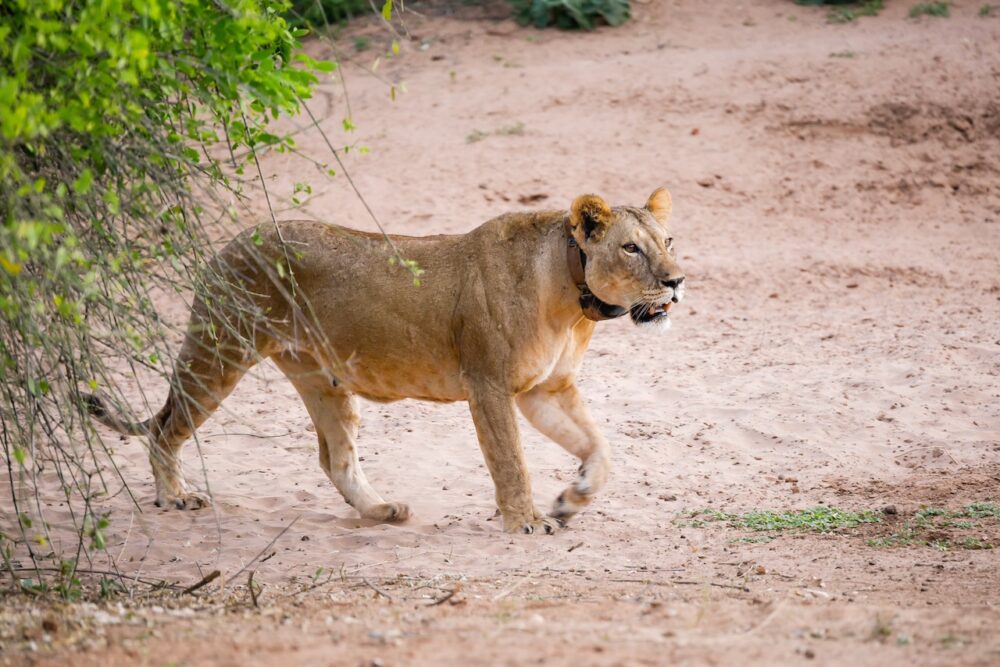
2021, Palm Springs, California. Photo: Gilberto Tadday / TED
We’ve been speaking boldly about the ways in which the conversation narrative has to change in Kenya and across Africa, most recently in the TED talk that featured Ewaso Lions work. But too often, in the multitude of words, nuance may be missing. We hope this blog clarifies some of our thinking.
Conservation = science + community
Scientists have illuminated many parts of the conservation world, and science has helped guide conservation action and wildlife management. But conservation is not just science. We firmly believe that conservation is about people, and that people living alongside wildlife have played an integral part, if not the most important part in keeping biodiversity intact across this continent and the world. It is time for them to be centred in the story of conservation.
Is the “guy in green with a gun” always needed?
Militarised approaches to conservation are not new. In some parts of the continent, there are few other options, especially where vast resources are used to illegally extract wildlife and other natural resources. We salute brave men and women who must risk their lives to protect their homes, people and wildlife in these dire places. However, we firmly believe these approaches are not always the answer. Their rise today as a “sexy” approach to conservation harkens to a time when colonial governments decided that we, as Africans were the main risk, and never the solution. This ideology must be surfaced, and we must ask the question, before force is deployed today “Is it necessary?” We have read in agony about situations where force was meted out on indigenous people, and great injustices were committed in the name of conservation. Real people bear the cost of these decisions made in high level board rooms, and there must be more thought put into them. At the very beginning, it was our cultures and communities of care that allowed us to live alongside wildlife. We wait for the day when coexistence will again be the dominant approach to conservation.
Tell us more about parachute conservation
Our good friend Asha de Vos popularised this topic in 2019 through her thinking and writing on parachute science. It is explained it in part in the TED talk where we speak about the negative impact people from the outside sometimes have on our continent, but we need to say more. By speaking about non-Africans coming to work on conservation here, we are not vilifying every person who has or wants to play a part in conservation on our continent. But we are questioning the mindsets they bring when they do come. Are they invited to partner with Kenyans and Africans, to share innovations and ideas on equal terms? Are they careful about the power relations and intentional to shift power to local people? Do they want to be heroes? We have many friends working on the continent who we know have been careful and self-reflective with these questions. Their end goal, and ours is that ultimately, African conservation needs African leadership. Conservation carefully defined by locals, in local hands is conservation rooted in justice. We hope the world shifts focus and supports this conservation wherever they see it.
*We have many more thoughts on this, even at regional and in-country levels which we would love to share more in-depth at a later date.
Why the focus on women in conservation?
We covered a lot of this in the TED talk, but we want to emphasise not just participation of women in conservation, but in leadership positions. At the top echelons of conservation globally, women only occupy 5% of the positions. This is a huge problem. If the most important decisions being made about our homes, our lands and our wildlife exclude half of the world’s population, it is understandable that biodiversity continues to decline. The diversity of thought, more empathetic ideas and decisions colour how this story can go. We want to give a big shout out to Women for the Environment Africa (WE Africa) for starting a movement that we know will transform environmental outcomes by putting women at the heart of conservation in Africa.
What are Ewaso Lions’ thoughts about tourism?
This is a topic we’ve spoken about in multiple fora. We recognise that in Kenya and in many parts of the continent, tourism has played an important role in funding conservation efforts and helping wildlife thrive. In fact, many of those who support Ewaso Lions met us while on safari. But during Covid, we got asked by many people if wildlife would survive the pandemic, and that got us thinking. If the only reason wildlife exist in Africa is for overseas tourists to come and see them, then something is seriously wrong. It is akin to believing that the only reason a baby is born is for visitors to come and see the family. We as Africans must and do value our wildlife far more than what people can pay to see. Wildlife on this continent exist because of us, and for that we can be proud. We believe there must be both self-reflection, and systemic reform to return conservation to its rightful place in our country, and the continent at large. Both of these are already underway.
We are still on a learning journey. We believe these topics must be addressed with empathy, and with courage. Ewaso Lions’ Beyond Boundaries KE programme focuses on these and many other topics, believing them to be foundational to changing the conservation narrative. Discussing and debating these issues is vital to moving forward together. If you would like to participate in Beyond Boundaries KE conversations, follow @EwasoLions on Instagram and Twitter and find us on Facebook.




